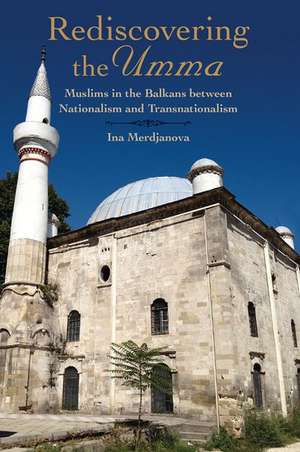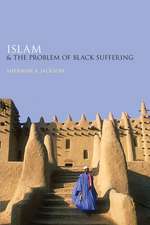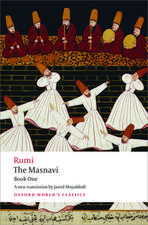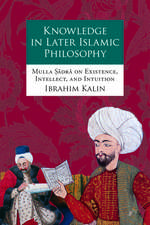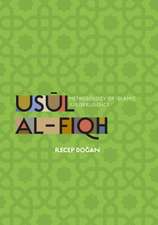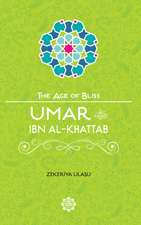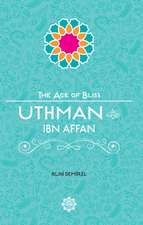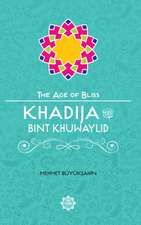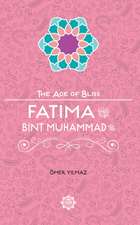Rediscovering the Umma: Muslims in the Balkans between Nationalism and Transnationalism
Autor Ina Merdjanovaen Limba Engleză Paperback – 7 apr 2016
Preț: 224.09 lei
Preț vechi: 274.60 lei
-18% Nou
Puncte Express: 336
Preț estimativ în valută:
42.88€ • 45.85$ • 35.75£
42.88€ • 45.85$ • 35.75£
Carte tipărită la comandă
Livrare economică 07-14 aprilie
Preluare comenzi: 021 569.72.76
Specificații
ISBN-13: 9780190462505
ISBN-10: 0190462507
Pagini: 218
Ilustrații: 2 tables; 1 map
Dimensiuni: 231 x 155 x 18 mm
Greutate: 0.32 kg
Editura: Oxford University Press
Colecția OUP USA
Locul publicării:New York, United States
ISBN-10: 0190462507
Pagini: 218
Ilustrații: 2 tables; 1 map
Dimensiuni: 231 x 155 x 18 mm
Greutate: 0.32 kg
Editura: Oxford University Press
Colecția OUP USA
Locul publicării:New York, United States
Recenzii
Far from adopting a monolithic, one-size-fits-all historical narrative, [Merdjanova] shows the different historical paths undertaken by the Muslims of the region in the Age of Nationalism.
This clear and innovative work offers an important view from the Balkans on European Islam. Ina Merdjanova traces changes and continuities from the Ottoman period to the present, and pulls off the difficult feat of both showcasing Balkan specifics and examining important differences in religion and politics across distinct communities. Required reading for anyone interested in comparative Islamic studies.
Muslims in contemporary Europe are generally assumed to be recent immigrants from Turkey, South Asia, or North Africa, but Merdjanova's excellent book challenges this stereotype by investigating European Muslim communities that have lived on the continent for centuries. This nuanced examination of the varieties of Muslim belief and practice in Southeastern Europe is a must read for anyone interested in understanding the complicated history and heterogeneity of European Islam.
Based on an extensive original research and a critical engagement with the existing scholarship, Ina Merdjanova's study presents a rich and diverse map of Islam in the Balkans and analyzes different factors and players involved in its shaping. Rediscovering the Umma will compel a more nuanced debate about the presence of Islam in Europe, which is sorely lacking in contemporary discourse on European religious and cultural identities. It will also serve as a useful textbook for anyone interested in this region's religious mosaic.
Rediscovering the Umma wonderfully captures the development of Muslim Balkan identities at the intersection of national and transnational forces. To be Albanian or Bosnian or indeed European, at the same time as Muslim, poses a challenge to communities, not least to women within them, who are seeking to integrate religious practices with evolving economic, cultural, and political circumstances. Ina Merdjanova provides a comprehensive and timely guide to the reclaiming of Muslim faith and practice in both the post-Communist societies of Southeast Europe and beyond.
The book provides an interesting overview of a very important topic related to different tendencies in the religiousness and identities of Balkan Muslims. It contributes for the better understanding of religious struggle and coexistence in Europe in 20th and early 21st centuries. The book will be very useful and informative for historians, social sciences researchers, students, and policy makers.
The book is a crucial contribution to scholarship on the Balkans, Islam, as well as for European nationalism and women's studies.
The detail-rich comparative account of Islam as a flexible religion adopting to the 'spirit of times' makes it an interesting reading
This clear and innovative work offers an important view from the Balkans on European Islam. Ina Merdjanova traces changes and continuities from the Ottoman period to the present, and pulls off the difficult feat of both showcasing Balkan specifics and examining important differences in religion and politics across distinct communities. Required reading for anyone interested in comparative Islamic studies.
Muslims in contemporary Europe are generally assumed to be recent immigrants from Turkey, South Asia, or North Africa, but Merdjanova's excellent book challenges this stereotype by investigating European Muslim communities that have lived on the continent for centuries. This nuanced examination of the varieties of Muslim belief and practice in Southeastern Europe is a must read for anyone interested in understanding the complicated history and heterogeneity of European Islam.
Based on an extensive original research and a critical engagement with the existing scholarship, Ina Merdjanova's study presents a rich and diverse map of Islam in the Balkans and analyzes different factors and players involved in its shaping. Rediscovering the Umma will compel a more nuanced debate about the presence of Islam in Europe, which is sorely lacking in contemporary discourse on European religious and cultural identities. It will also serve as a useful textbook for anyone interested in this region's religious mosaic.
Rediscovering the Umma wonderfully captures the development of Muslim Balkan identities at the intersection of national and transnational forces. To be Albanian or Bosnian or indeed European, at the same time as Muslim, poses a challenge to communities, not least to women within them, who are seeking to integrate religious practices with evolving economic, cultural, and political circumstances. Ina Merdjanova provides a comprehensive and timely guide to the reclaiming of Muslim faith and practice in both the post-Communist societies of Southeast Europe and beyond.
The book provides an interesting overview of a very important topic related to different tendencies in the religiousness and identities of Balkan Muslims. It contributes for the better understanding of religious struggle and coexistence in Europe in 20th and early 21st centuries. The book will be very useful and informative for historians, social sciences researchers, students, and policy makers.
The book is a crucial contribution to scholarship on the Balkans, Islam, as well as for European nationalism and women's studies.
The detail-rich comparative account of Islam as a flexible religion adopting to the 'spirit of times' makes it an interesting reading
Notă biografică
Ina Merdjanova is a senior researcher and an adjunct assistant professor at the Irish School of Ecumenics, Trinity College Dublin. She is the author of Religion, Nationalism, and Civil Society-The Postcommunist Palimpsest, and Religion as a Conversation Starter: Interreligious Dialogue for Peacebuilding in the Balkans (with Patrice Brodeur).
